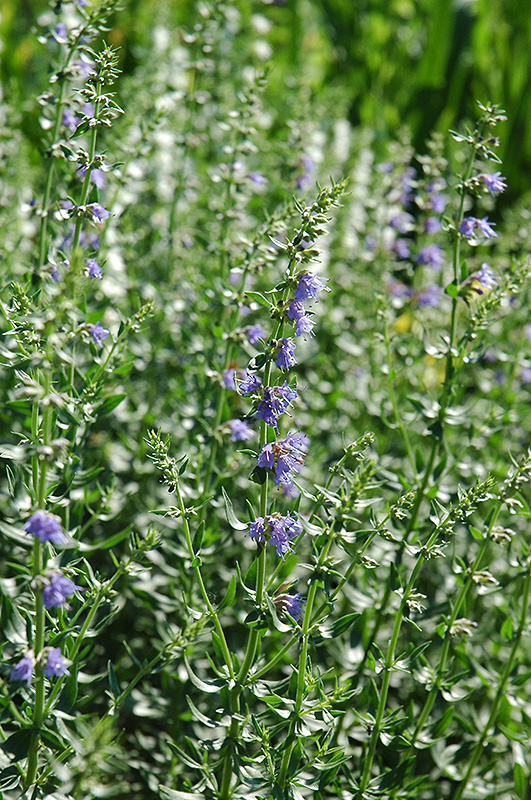Height: 30 inches Spread: 18 inches
Sunlight:
Hardiness Zone: 4a Description: A popular ornamental perennial, perfect for beds, borders and containers; bright violet-blue flowers attract pollinators to gardens; this edible plant is perfect for making teas or seasoning; low maintenance and easy to grow Edible Qualities Hyssop is a perennial herb that is typically grown for its edible qualities. The fragrant oval forest green leaves are usually harvested from mid spring to early fall. The leaves have a minty taste. The leaves are most often used in the following ways: Features & Attributes Hyssop has masses of beautiful spikes of lightly-scented powder blue flowers rising above the foliage in mid summer, which are most effective when planted in groupings. The flowers are excellent for cutting. Its fragrant oval leaves remain forest green in color throughout the season. This is an herbaceous perennial herb with an upright spreading habit of growth. Its relatively fine texture sets it apart from other garden plants with less refined foliage. This plant will require occasional maintenance and upkeep, and is best cleaned up in early spring before it resumes active growth for the season. It is a good choice for attracting bees and butterflies to your yard. Gardeners should be aware of the following characteristic(s) that may warrant special consideration; Aside from its primary use as an edible, Hyssop is sutiable for the following landscape applications; Planting & Growing Hyssop will grow to be about 24 inches tall at maturity, with a spread of 18 inches. It grows at a fast rate, and under ideal conditions can be expected to live for approximately 5 years. As an herbaceous perennial, this plant will usually die back to the crown each winter, and will regrow from the base each spring. Be careful not to disturb the crown in late winter when it may not be readily seen! This plant is typically grown in a designated herb garden. It does best in full sun to partial shade. It is very adaptable to both dry and moist locations, and should do just fine under typical garden conditions. This plant does not require much in the way of fertilizing once established. It is not particular as to soil type or pH. It is somewhat tolerant of urban pollution. This species is not originally from North America.
A NetPS Plant Finder tool![]()
![]()
![]()
![]()
![]()
![]()
![]()
![]()
![]()
![]()
![]()

